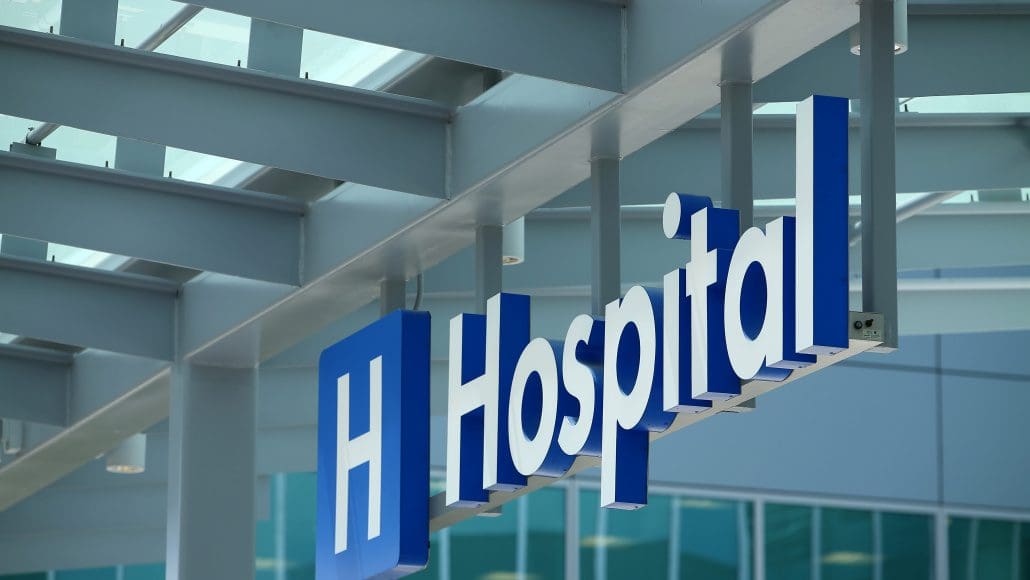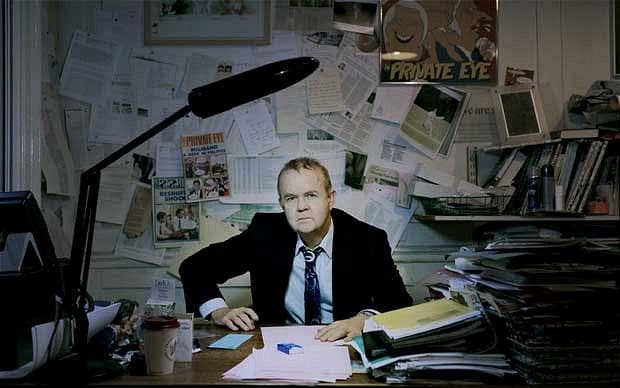

The NHS is in Permanent Crisis, But it Will Never Accept Reform
It may be a New Year, but it’s the same old traditional winter crisis in the wonderful NHS. The Daily Sceptic team have asked me to comment on the latest announcements, pronouncements and prognostications from the commentariat on the current state of permacrisis. To be frank, it’s all got far too shouty, but again, that’s part of the rich tradition of how we ‘do healthcare’ in the U.K.
Regular readers of this column will be familiar with my general views on the situation and the complex interactions of flawed decisions about workforce, medical training and working practices taken 20 years ago, which are now coming home to roost. I won’t dwell on these further. Rather, I’d like to look at the latest developments in the story, and as usual attempt to analyse for readers the issues that are not obvious at first sight – to understand what the real drivers, vested interests and motivations are behind seemingly inexplicable current circumstances.
Since I last contributed, the overload on the system has worsened. The principal problems are an increase in acute medical admissions. For the non-medical reader, these are cases such as community acquired bacterial pneumonia, diabetic crises, acute asthmatics, urinary tract infections, heart attacks, strokes and so on. This year these have increased markedly, probably as a consequence of poor management of chronic illness in primary care since 2020. Attendances at A&E for minor conditions which don’t need admission to hospital are also up, because of the difficulty in accessing GP appointments. On top of that, we have a large number of influenza patients (hardly surprising due to virtual absence of flu in the last two winters), plus problems in discharging patients from hospital because of shortages in the social care system.
As readers will no doubt have noticed, this year is particularly special because nurses and ambulance drivers have decided to ‘save our NHS’ by going on strike for higher pay at the point of maximum stress. I read today that junior doctors are also threatening to strike by refusing to attend emergency patients for 72 hours. Train strikes are making it very difficult for doctors and nurses to get to and from work, particularly in London.
The cumulative effect of these pressures is that hospitals are full, because they are unable to discharge patients in a timely fashion and unable to prevent new patients arriving at the front door. Sick people continue to turn up in taxis even if ambulances are not available. When nurses and trainee doctors go on strike, hospitals are obliged to cancel routine operating and other procedures and focus limited resources on emergency work only. Of course, non-striking staff salary costs still have to be paid by the taxpayer, even if those staff are prevented from operating, so efficiency falls still further. Readers may draw their own conclusions in relation to the justification for strike action, but the argument that strikes are necessary to save the NHS seems logically inconsistent to me.
Hence routine surgical operations and other elective procedures are again being postponed, making the Covid backlog worse still. One answer might be to increase the number of hospital beds. The argument about numbers of beds in the U.K. compared to other European nations rages back and forth and has become a political bone of contention. There are useful resources available for interested readers at these links.
As might be expected, the problem is not as simple as portrayed in the mainstream media. Hospital bed numbers have been declining steadily since the 1980s and dropped markedly during the Blair administration. Much of this decline was due to advances in medical treatment, meaning patients needed shorter stays in hospital. Conditions formerly requiring prolonged hospital stays could be treated in the community and a lot of surgery moved to day case treatment or very short stay admissions. A similar pattern of reduction in hospital bed numbers is evident across the EU. This is not news.
What may perplex readers is the inability of our NHS experts to draw the logical conclusions from differences in hospital bed provision and other healthcare infrastructure per capita in Germany or France compared to the U.K. Could it be possible that the Germans have more beds per capita because they run a mixed healthcare economy with a variety of providers? In short, because the structural nature of their system (first established by Bismarck in 1883) encourages a better balance between supply and demand than in our politicised central control model. Consistent with socialists everywhere, NHS zealots insist that our system doesn’t work because it hasn’t been properly implemented or funded yet. Sadly, we are not about to get the necessary fundamental change in our healthcare model for reasons I will expand on.
In response to the current crisis, a number of encouraging innovative solutions have emerged. One is the use of hotels near hospitals for locating patients nearly well enough for full discharge. This model has been used previously in the USA. In some ways, it replicates the old model of community hospitals which still existed when I was a junior doctor in the 1990s, but in a more flexible manner allowing for ‘surge capacity’ in times of stress. The Government has also recently announced an expansion of ‘surgical hubs’ in both the NHS and private sector to process the backlog of routine surgical cases.
This is a particularly good idea and a proven efficient model for managing elective cases. The key point is that the elective centre is geographically distinct from the acute NHS hospital site. This prevents overspill of medical patients occupying beds for routine surgical cases and stopping surgical work from taking place. Hence surgeons can continue to operate even when all the beds in the acute hospital are full of medical emergency cases. There is good evidence to suggest that efficiency in NHS hospitals also increases when an independent sector centre opens nearby.
Naturally these initiatives are opposed by the BMA. The usual arguments are that elective surgical centres ‘cherry pick’ the straightforward uncomplicated cases, leaving the larger hospitals to deal with the complex and risky cases. I simply don’t understand this argument in medical terms. If the objective is to provide high quality surgical care for the largest number of patients in the most timely manner, then the method and location by which that care is delivered is irrelevant. Consistent opposition to treatment centres can in my view only be explained by ulterior motives relating to control of process by vested interest bodies. When the Shadow Health Secretary Wes Streeting had the effrontery to suggest that pay rises for NHS staff need to be linked to productivity rises, he ran into a storm of opposition from NHS vested interests and from his own party, still committed to the 1950s centralised control model. In an interview with the Times, Streeting has suggested that the existing opaque funding model for primary care needs to change and has once again provoked an hysterical reaction from the usual quarters. My expectation is that even if he were to become Health Secretary in a Labour administration, he’d be prevented from implementing such changes by his own side.
The entrenched opposition in the NHS establishment to meaningful change can be encapsulated in this podcast debate featuring Sally Warren, Director of Policy at the Kings Fund. Interested readers would find it worthwhile.
I was struck by the poverty of her argument – the main plank of which seemed to be that changing the NHS to a social insurance model would be too costly and disruptive. Her main piece of evidence supporting this conclusion was that only one country has done this before (Canada in the 1970s), but given that only the U.K. and Cuba run an NHS monopoly provider model, this really doesn’t stand scrutiny. One of the other participants in the debate is a German journalist living in North London who is highly complimentary about NHS provision of care he has experienced. Readers will note however that he is married to an NHS consultant physician, therefore has privileged insider knowledge and access in navigating the system. Readers may also consider whether the nomenclature in the upper reaches of NHS England are obliged to queue up with the rest of the population to access GP appointments and consultations with NHS specialists. Might there be a clandestine, unofficial ‘fast track’ system for those favoured individuals in our socialist system that guarantees equality of treatment for all citizens?
I may write further on the arguments deployed in that podcast at a later date, but I would like to leave readers today with one final thought about what is preventing meaningful change in our failing healthcare system. It goes to the question of where power lies in 21st century Britain. Elected representatives no longer have control of the levers to effect change as any move to encroach on the provider interest can be stymied by institutional inertia. The British medical establishment will die in a ditch before allowing remuneration to be linked to measurable productivity of individual doctors. The Gramscian ‘long march’ has occurred not just in our education system but in the health system as well. I’m afraid the near-term prognosis is grim. My expectation is that NHS management will play it long, awaiting a Labour Government in 2024, when more taxpayer cash will be handed over for no discernible increase in service levels. We risk ending up with a two-tier system by default, where the rich pay privately and the poor suffer what they must. Better not get ill or old. Happy New Year.
The author, the Daily Sceptic‘s in-house doctor, is a former NHS consultant now in private practice.






